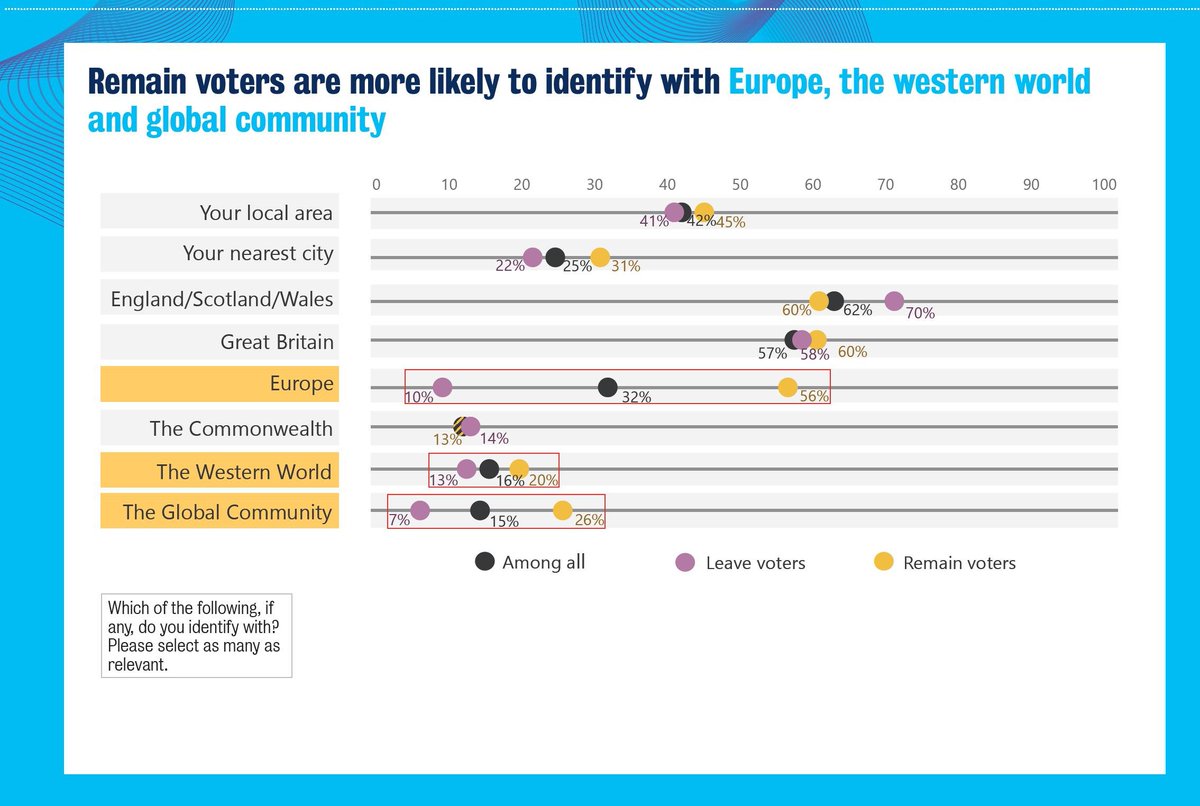Chris Patten talking about English exceptionalism and English nationalism is entirely counterproductive to the case he is trying to make. https://www.telegraph.co.uk/politics/2020/12/12/boris-johnson-branded-english-nationalist-former-tory-chairman/?WT.mc_id=tmgliveapp_iosshare_AwX2HSXCrdll
That doesn't apply to advocates of Scottish or Welsh independence, who may find this argument useful. Its truly hopeless for critics of Brexit or advocates of a deal. It seems to me negligent for *political* voices to still not realise this is counterproductive, even 5 years on
There are numerous, overlapping problems with this argument. One connective thread is that the critics of English exceptionalism hold an exceptionalist view of England and English identity as distinctly or even uniquely problematic.
David Cameron, surprisingly, made this the closer of his TV debate in the 2016 campaign https://twitter.com/christopherhope/status/740282439067697152?s=19
Nick Clegg, less surprisingly, made it his closing statement and his email subject line header to LibDem members when he debated Farage in 2014 https://twitter.com/guardian/status/458231946297229312?s=19
Good explanation from @stephentall for LibDemVoice back in Spring 2014 why it is, beyond the party audience, a counterproductive way to contrast outward-looking and inward-looking ideas about the country https://www.libdemvoice.org/time-for-nick-clegg-to-ditch-the-great-britain-not-little-england-line-38889.html#utm_source=tweet&utm_medium=twitter&utm_campaign=twitter
2019 data from @policyatkings on the range of overlapping identities of Remain and Leave voters. Being pejorative about England is pretty odd to many/most Remainers as well as most 2016 swing voters and most Leavers

 Read on Twitter
Read on Twitter




